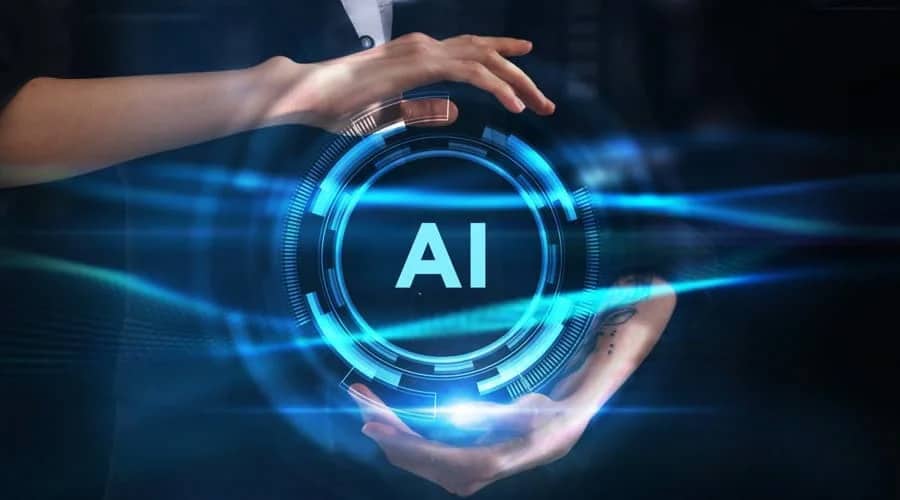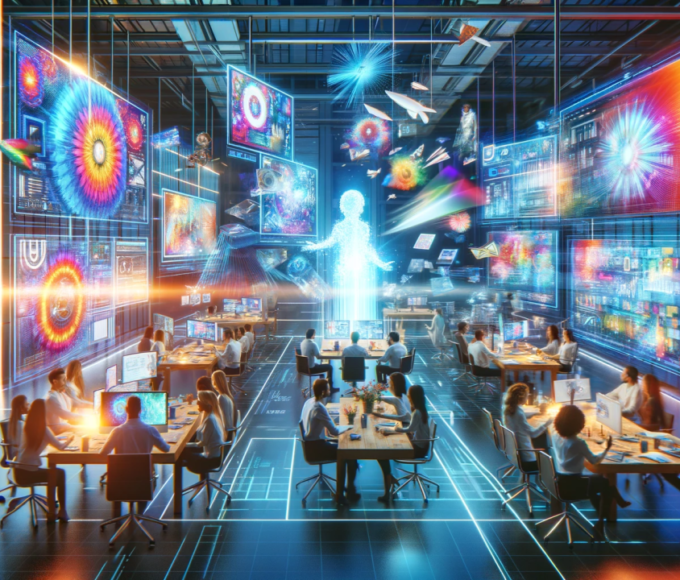Artificial Intelligence (AI) has rapidly progressed over the years, transforming the way we live, work, and interact with technology. From its early theoretical foundations to its practical applications today, AI has revolutionized numerous industries and holds the potential to shape our future in unprecedented ways. In this blog, we will embark on a journey through the evolution of AI, exploring its early concepts and highlighting the remarkable advancements that have brought us to the cutting-edge AI technologies of today.
The Birth of AI:
AI can trace its origins back to the 1950s when pioneers such as Alan Turing and John McCarthy laid the theoretical groundwork for intelligent machines. Turing proposed the famous “Turing Test”, which gauges a machine’s ability to exhibit intelligent behavior indistinguishable from that of a human. McCarthy coined the term “artificial intelligence” and organized the Dartmouth Conference in 1956, marking the official birth of the AI field.
Symbolic AI and Expert Systems:
In the early days, AI predominantly focused on symbolic reasoning and logic. Symbolic AI aimed to represent knowledge and solve problems using symbolic rules and logic algorithms. One of the prominent AI applications during this period was expert systems. These systems employed expert knowledge encoded in rule-based systems to assist in decision-making, medical diagnosis, and other specialized domains. Though limited by the knowledge acquisition bottleneck, expert systems paved the way for more complex AI approaches.
Machine Learning and Neural Networks:
In the 1980s and 1990s, AI experienced a shift towards machine learning approaches. Machine learning enabled computers to learn patterns and make predictions without being explicitly programmed. Neural networks, inspired by the structure of the human brain, played a crucial role in this transformation. Backpropagation, a method for training neural networks, fuelled advancements in image and speech recognition. However, limited computational power and a lack of labeled data hindered progress during this era.
Big Data and Deep Learning:
With the advent of the internet and the exponential growth of data, AI entered a new phase. Big data provided fuel for AI algorithms, and deep learning emerged as a game-changer. Deep learning employs neural networks with multiple hidden layers to learn complex representations from data. Breakthroughs in deep learning, coupled with advancements in hardware, enabled significant progress in computer vision, natural language processing, and robotics. Applications like self-driving cars, virtual assistants, and facial recognition systems showcased the power of deep learning algorithms.
Reinforcement Learning and AI in Gaming:
Reinforcement learning, a subfield of machine learning, introduced the concept of agent learning through trial and error in dynamic environments. In the realm of gaming, AI algorithms have made remarkable strides. AlphaGo, developed by DeepMind, defeated a world champion Go player using a combination of deep learning and reinforcement learning techniques. This achievement highlighted the potential of AI to surpass human capabilities in complex strategic domains.
AI in Healthcare, Finance, and Beyond:
AI’s impact extends beyond the gaming realm. In healthcare, AI is being utilized for disease diagnosis, drug discovery, and personalized medicine. AI algorithms can analyze vast amounts of patient data, aiding in early detection and improved treatment outcomes.
In the financial sector, AI algorithms are employed for fraud detection, algorithmic trading, and risk assessment. Additionally, AI technologies are revolutionizing transportation, manufacturing, agriculture, and many other industries, making processes more efficient and transforming business models.
The evolution of AI from its early concepts to modern applications has been nothing short of extraordinary. From symbolic reasoning to deep learning and reinforcement learning, AI has continuously pushed boundaries, bringing us closer to the realization of intelligent machines. As we move forward, ethical considerations, transparency, and responsible AI development are paramount to ensure AI benefits society at large.
With ongoing advancements and the collective efforts of researchers, AI is poised to redefine our future, enabling us to address complex challenges and unlock new possibilities we never thought possible.
















Leave a comment